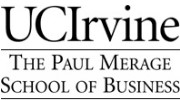Are business school rankings hurting business schools? I acknowledge that when people try to make sense of the massive amount of business schools a ranking is an attractive method to quickly identify some schools. Unfortunately, the final rankings are subject to the criteria and weights used by the ranking organization. Given that all prospective business school applicants have unique needs from a business schools, it is incredibly flawed to use one set of criteria and weights to define a "Quality" business school.
Furthermore, business schools have accepted the existence of these rankings and have tailored their strategies to improve their ranking results. Case and point is that most rankings rank quality of faculty by only one factor: the number of publishings by faculty (and student-teacher ratios). Therefore, business schools, concerned about rankings (and most are), hire faculty who are researchers and publish their work. Now, are researchers good teachers? Generally not (but they are great when they are found) as researchers are known for their analytical abilities, but not there ability to simplify and synthesize data to laypeople.
I bring this up because over the past year Merage has been on the move; hiring high profile faculty. These are thought leaders in their field that any business school would covet. The problem is that some of these people have difficulty communicating their knowledge to everyday MBAs. In an experience to which I can relate, when a researcher's audience can't follow the path of their mind, they get frustrated. Some people, like myself, dedicate themselves to improving their ability to communicate with different people. Other people, like certain academics, find refuge in the one community that understands them (other academics), publishing papers, and never improving their communication skills. This leads to a poor teaching experience. But at least we improved this area of our rankings.
Last year we didn't offer tenure to a great professor who was a master at introducing MBA students to a new study topic through lectures and interactive exercises. I don't have inside knowledge, but my guess is that he was more focused on teaching and not publishing enough new research. So we lost a good "teacher", gained a good "researcher", but at least we improved in this area of our rankings.
Now, I don't want to give the impression that Merage does not have great teachers. We have many incredible teachers (some are also good researchers). My point is that this is a fact of life at all business schools in the business school rankings. Their strategy is dictated more by the criteria of the rankings and less by student needs. After all what good is meeting your students needs, if they reduce the school's ranking? You will have no students applying to the school.
Subscribe to:
Post Comments (Atom)


No comments:
Post a Comment